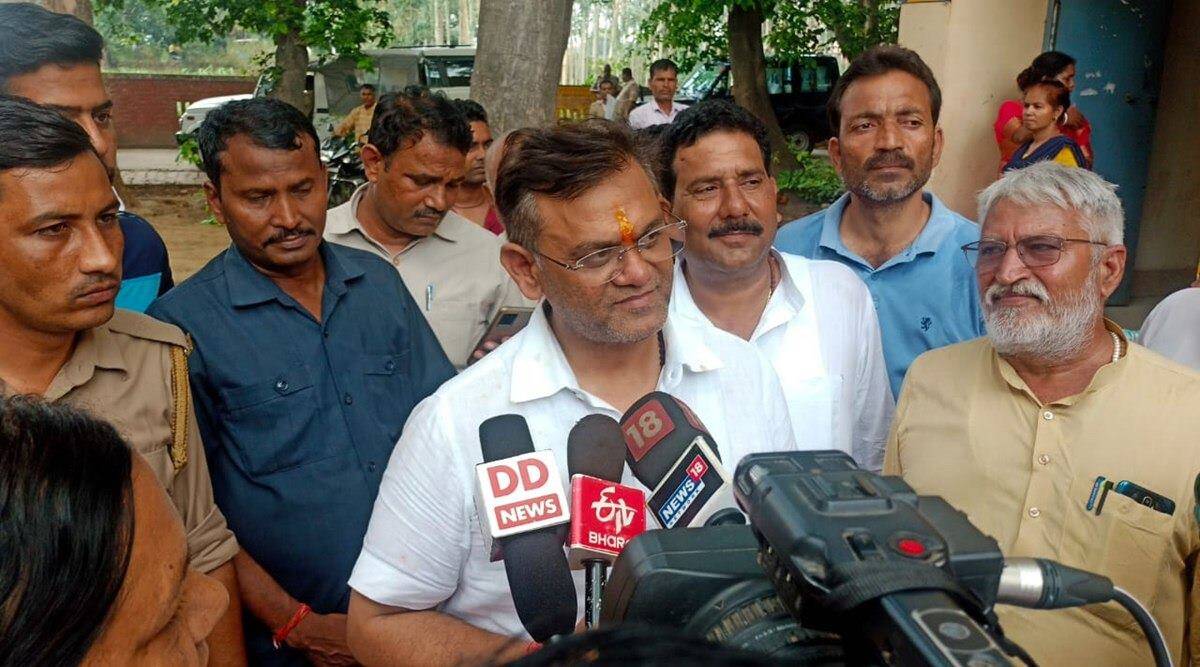Uttar Pradesh Minister of State Dinesh Khatik dispatching his resignation from the council of ministers to the Union Home Minister and the state governor draws our attention to two things – the first is how the Bharatiya Janata Party (BJP) treats its leaders from castes designated as Shudras and Untouchables by the Varna system; the second is the self-evident contradiction in those belonging to these castes who have joined the race for power being subjected to casteist oppression and yet remaining in power.
A brief recap of how the representatives of Shudra and untouchable castes have had to or were forced to quit the BJP since the party coming to power would be in order. A minister of state in the Atal Bihari Vajpayee ministry, who was projected as the Dalit face of the party, had described how one day his cabinet minister summoned him and told him sternly that while he could put up with a Dalit leader he couldn’t tolerate a leader of the Dalits. What the representatives of Dalit and Shudra castes in the BJP wrote in their resignations from the party from time to time will make for an interesting reading.
Dinesh Khatik has made two points – one, that he is not being given any importance because he is a Dalit. He is not invited to meetings and the officers don’t pay heed to him. Some officers even disconnect phone calls in the middle of his conversations with them. His cabinet minister also makes him feel that he is not valued. Khatik has also drawn attention to the wider issue of the status of ministers of state. A study on the plight of the ministers of state is eminently warranted. Ministers of state have been reduced to symbols with no real share in power. It is a common complaint that their responsibilities are not commensurate with their status. We also need to look at the kind of departments allocated to Dalit, OBC and Adivasi MLAs and MPs on their induction into ministries. Theoretically, no department is insignificant. But in practice, some departments are seen as centres of power.

Dinesh Khatik sent his resignation to the Union Home Minister. There is a set procedure for resignations of the ministers in the various states and at the Centre. In the states, the ministers send their resignations to the chief minister and at the Centre, to the Prime Minister. The chief minister or the prime minister then forwards them to the Governor or the President, as the case may be, along with their recommendation. The fact is that Dinesh Khatik doesn’t want to resign. He is just trying to relate his tale of woes. He wants to continue in power but wants an end to the suppression because of the caste. After Khatik sent his resignation, Chief Minister Yogi Adityanath asked him to share his grievances. After that, some steps seem to have been taken to give Khatik greater say in the affairs of the department.
There are all kinds of misplaced notions about political power. One of them is that power is the key that can open any lock. Being in power is not only about being a minister. There are numerous power structures in society. When Abdul Ghafoor was the chief minister of Bihar, he complained that the police brass didn’t listen to him. If you will hear out the Shudras and the Untouchables in the bureaucracy, you will find that they too have the same complaint. The fact is that in parliamentary democracy, political power has two faces. It can be used to protect and strengthen the political, social and economic interests of particular communities or castes. Or it can be used just to lure and fool certain sections of society. Of late, symbolism is being increasingly used by the dominant ideology to further its interests in parliamentary politics. Great publicity is given to the inclusion of the representatives of the Dalits, the OBCs and the Adivasis in the councils of ministers. But what is never revealed is the true extent and nature of the responsibilities entrusted to them and in whose interest they are actually working. If oppression of Dalits increases in society, Dalit faces in politics too will experience it in one way or the other. Casteist oppression has its own framework and sometimes even political power cannot counter it. A political ideology is based either on building or sustaining the structure of casteist oppression or on crushing other castes.
(Translation: Amrish Herdenia; copy-editing: Anil)
Forward Press also publishes books on Bahujan issues. Forward Press Books sheds light on the widespread problems as well as the finer aspects of Bahujan (Dalit, OBC, Adivasi, Nomadic, Pasmanda) society, culture, literature and politics. Contact us for a list of FP Books’ titles and to order. Mobile: +917827427311, Email: info@forwardmagazine.in)
The titles from Forward Press Books are also available on Kindle and these e-books cost less than their print versions. Browse and buy:
The Case for Bahujan Literature
Dalit Panthers: An Authoritative History







